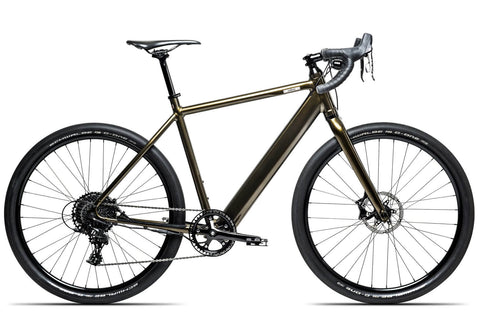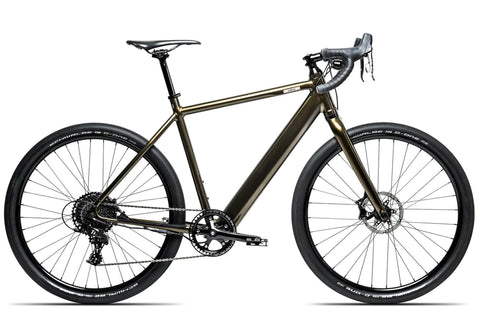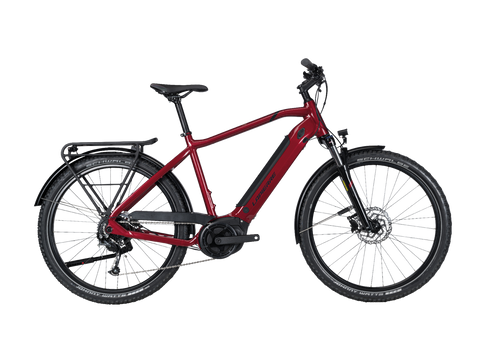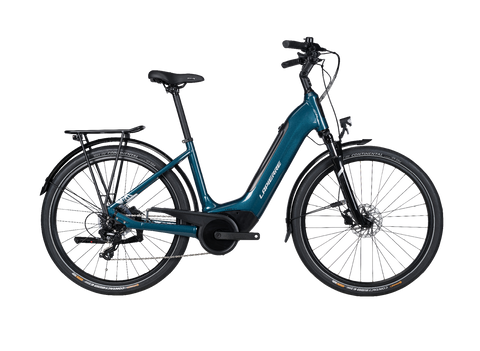
Bamboo Alternatives for Sustainable Living
Welcome to the Small Sustainability Steps series, brought to you by Urban.Ebikes.
The aim of this series of articles, published fortnightly online, is to draw attention to easy swaps you can make in your day-to-day life in order to decrease your individual carbon footprint, gain a better understanding of why these changes are important, and how we can all work together as global citizens to slow the effects of climate change.
So, what is the focus of our first article? The answer: to bamboozle you with bamboo alternatives!

Native to the Asia-Pacific region, bamboo is one of the most versatile substances on the planet, and that is not an exaggeration; bamboo has a tensile strength that equals steel! Throughout human history, bamboo has been utilised for building houses and other dwellings, fashioned into hunting implements and cooking utensils, and prized for its decorative qualities.
Technically a part of the grass family, it is also one of the fastest growing plants on the planet – certain species of bamboo can grow around 1mm in 90 seconds. Bamboo is cheap to cultivate, doesn’t require much maintenance, grows well in harsh climates where tree crops have failed, and is already present in many ecosystems around the world. But the biggest advantage of bamboo is this: it takes 6 months for your average bamboo item to compost, compared to the hundreds of years it would take for a plastic counterpart to do the same.
One of the biggest threats to our marine ecosystems is single-use plastics and according to NOAA, 8 million metric tons of waste plastic enters the ocean every year.
Take a moment to consider this past week; how many times do you think you have come into contact with a plastic spoon? A bottle of water? Used cling film? Taken a wad of napkins from a restaurant? Made tea with teabags? Or used a shower gel containing microbeads?
When we start to reflect on our habits, we begin to see that our relationship with single-use plastics seems, at first, impossible to end. So how can bamboo help an average Joe like me increase my day-to-day sustainable living and begin to rely less on single-use plastics?
Bamboo utensils

For the past 6 months, I have been carrying with me a small, lightweight roll of bamboo utensils. The set, easily found online, comprises of a fork, knife, spoon, straw (which I will elaborate on later) and a straw cleaner. There are also sets that come with chopsticks, which have been made from bamboo for centuries.
This set has given me the freedom to refuse plastic takeaway utensils on trips out countless times, and left me safe in the knowledge that I am not contributing to the 5 most common items found during the International Coastal Clean-Up; plastic cigarette butts, food wrappers, plastic beverage bottles, plastic bottle caps, and plastic straws and drink stirrers.
Bamboo straws

You may have seen in the news recently, that companies such as Starbucks and McDonald’s are making sweeping pledges to end the practice of offering plastic straws to their customers. For the eco-minded, this is a welcome change in tactic as every year in the US 500 million straws are used by consumers each day!
Sustainable alternatives include metal and bamboo straws, the metal ones you can recycle and the bamboo ones you can throw in the compost pile. Most companies that sell bamboo straws also sell the utensils required to clean them – but this is essentially just a pipe cleaner and cleaning a bamboo straw is no more work than cleaning your other utensils.
Bamboo toothbrushes

A plastic toothbrush takes up to 1,000 years to decompose. It is as simple as that.
A bamboo toothbrush: 6 months. Lot’s of companies sell bamboo toothbrushes in handy 4-packs – one for every (average sized) family member!
On top of this, bamboo toothbrushes have a much smaller carbon footprint as no oil has been used in the production of the main body.
Just like a plastic toothbrush, you should try to change to a new one every few months or so and be aware what substances are used in the making of the bristles.
Bamboo Toilet Roll
Finally, consider bamboo toilet paper. Bamboo is stronger and softer than paper that is made from hardwoods, less deforestation is involved as bamboo takes up less space to grow, grows much faster than hardwood trees, and doesn’t require any replanting once it is harvested.
But watch out! Masquerading among us as a sustainable alternative is the fiendish bamboo textile: don’t be fooled by the companies cashing in on the recent spike in profits relating to all things eco-friendly. Many, many chemicals such as lye (drain cleaner, used in the making of soap) and carbon disulphide (an industrial solvent) are used to make rayon out of the short bamboo fibres. Be aware if you find a garment labelled ‘Bamboo Rayon’ as this is, in reality, a semi-synthetic product of harmful practices that have caused controversy over the years due to the adverse effects on the employed workers using the chemicals involved.
Also, why not try to use bamboo as an alternative in your gardening regime: I use bamboo rods in my garden instead of plastic or metal stem supports and to attach seedling protection sheeting to. Small pieces of bamboo can also be used as plant markers and dibbers for individual seed planting in the spring.
In the next few articles, I will be sharing how bees help bread stay fresh, tips for natural alternative to common household cleaners, and how buying in bulk can help spread costs and reduce waste.
References
- Roach, Mary (1 June 1996). "The Bamboo Solution: Tough as steel, sturdier than concrete, full-size in a year". Discover Magazine
- VIDEO “Trash Talk: Why is Plastic Debris So Common?” https://oceantoday.noaa.gov/trashtalk_plastics/ (transcript)
- “The Last Plastic Straw”, thelastplasticstraw.org (2017) accessed 06/02/2019
-
“4 benefits of using bathroom tissue made from bamboo” 10th July 2017, www.wholerollaroundtheglobe.com accessed 06/02/2019
-
Monosson, Emily (2016). "Toxic textiles". Science. 354 (6315): 977.




